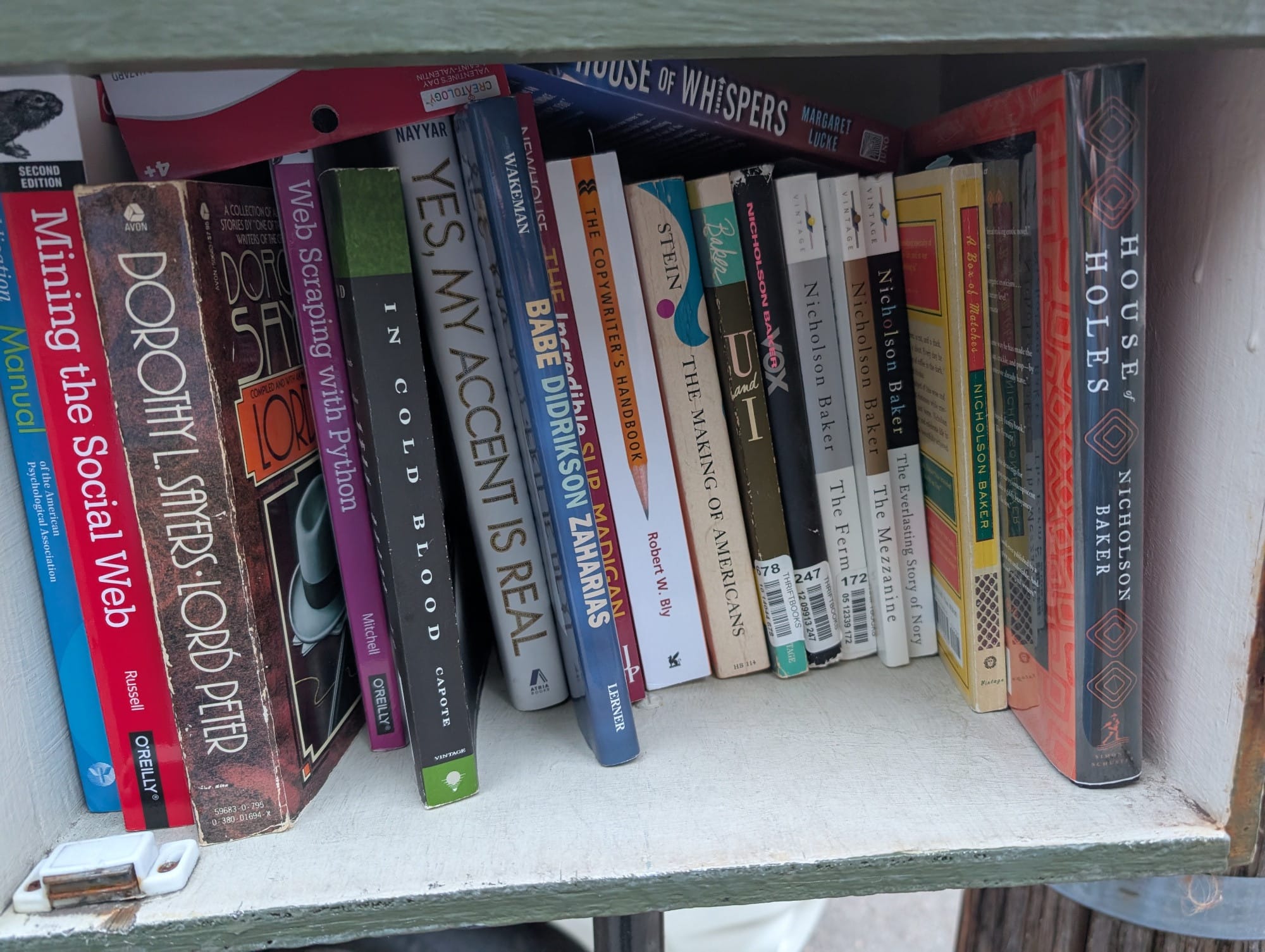Because he was already tracking the destruction of paper card catalogs, Nicholson Baker discovered in 1996, “that San Francisco is a case study of what can happen when telecommunications enthusiasts take over big old research libraries and attempt to remake them, with corporate help, as showplaces for information technology.” Over two hundred thousand books had been “weeded,” but as librarians showed him, without paper card catalogs, weeding was invisible: “if a book had been weeded and discarded, it wouldn’t be registered in the new digital system and there would be no evidence it had ever existed.”

The book he wrote about all this, Double Fold, is not to be found in the little free library where someone is currently disposing of precisely seven (7) Nicholson Baker books. Perhaps they have it, and decided to keep it? Or perhaps it has been weeded, but already composted into a new garden’s bookshelves, if the metaphor can be extended that far? Perhaps it was never in the collection. Little Free Libraries do not have card catalogs, so there is no way of knowing anything about their provenance.
We can speculate, however. Three are his erotica novels, which are not at all what one expects from what the genre of erotica leads one to expect. Four are not his smut catalog: The Mezzanine (1988) is his first novel (and still the one that everyone points to as the novel that makes him An Important Novelist) and A Box of Matches (1998) and The Everlasting Story of Nory (2003) are two others from his “Nicholson Baker writes an entire novel about nothing” novels, possibly drafting in the cultural footprint of Seinfeld (1989-1998) but probably just doing end-of-history postmodernism. The key might be that the four books which are not “Nicholson Baker writes an entire novel about nothing” novels all give signs of being purchased used: Vox and The Fermata (1992 and 1994, extremely horny) as well as U and I (1991, so unhorny and Updikey that it was very possibly the reason he had to immediately write pornography), all have the little Thriftbooks tag on the spine that you get when you order them through Amazon, which is how you order them. (Thriftbooks’ business model “is based on achieving economies of scale through automation,” which is to say, Amazon.) And, of course, the glossy plastic-on-hardback cover on House of Holes (2003, absolute filth) indicates, unmistakably, a book that was bought by a library and been discarded.
I read the first story in House of Holes: a disembodied hand shows up and fingers a pair of bored college students, who then disappear into the "O" it makes with its fingers. Presumably a lot more people have disquieting orgasms after that.
If you wish to purchase these seven books from Thriftbooks, you can get them for $45.63; if you want them for free, as of yesterday, they are all to be found on Lawton Avenue, a block from where the old location of East Bay Booksellers was before it burned the fuck down. While you're there, grab Stein's The Making of Americans, which is not the one that contains her infamous Oakland phrase (There is, in other words, no "there is no there there" there.)
—Aaron Bady
